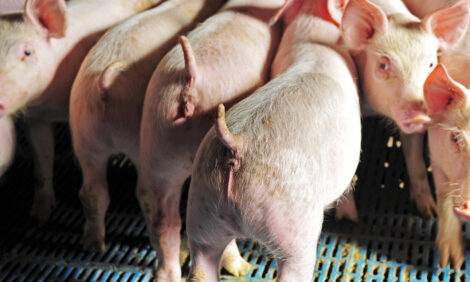



Listeria Report Finds Series of Failings
CANADA - The report into the causes and actions taken during the listeria outbreak in Canada last year that killed 22 and made 57 people seriously ill has found a series of failings at both government and company level.The source of the outbreak was the Maple Leaf Foods Bartor Road processing plant.
The outbreak led to the recall of 191 meat products and the report describes the events that led to the recall and the actions the authorities took at the time.
The report notes that those most at risk in the outbreak were the elderly who lived in a care home and were admitted to a hospital that served contaminated deli meats.
The reports says that a combination of events and circumstances created the conditions enabling listeriosis to take hold.
"Listeria defeated the best efforts of all those trying to prevent it from entering the food supply, including workers attempting to control it in the Maple Leaf Foods Bartor Road plant," the investigator, Sheila Weatherill, says in her report.
"It also evaded the oversight systems of both Maple Leaf Foods and the federal government (CFIA). As a result, a segment of the population that is the most vulnerable was exposed to its damaging and sometimes deadly effects."
The investigator says that once people were ill, there were many challenges in managing the emergency right in the middle of summer.
"It brought together multiple jurisdictions and two sectors of the federal government that, on a day-to-day basis are not required to work closely together: the public health and food safety sectors," the report says.
"When viewed through the lens of public health, the focus is primarily on identifying what is making people ill.
"But when viewed through the lens of the food safety sector, the focus is primarily on identifying the exact food product that is causing the illness so that the correct food is removed from the market. This, coupled with the infrequent occurrence of such emergencies, compounded the challenges in managing this event."
After in-depth analysis, and expert advice from five food safety and public health authorities, the Investigation found weaknesses in four critical parts of the food safety system.
- The focus on food safety among senior management in both the public and private domains.
- The state of readiness of the various governments.
- The sense of urgency at the outset of the outbreak.
- National communications with the public.
The investigation also came across other matters of capacity, governance and structure affecting the response to the outbreak.
However, the report also says that progress has been made since the 2008 outbreak on a number of fronts but there is still room for improvement in the federal food safety and legislative framework.
"Many of the issues - and even some of the recommendations generated by this Investigation - have been raised in previous reports on food safety in Canada. Recommendations are only words on paper until they are acted on," says the report.
"As foodborne illnesses are now the largest class of emerging infectious diseases in the country, and listeriosis is a serious disease with deadly consequences for vulnerable groups, governments cannot afford to ignore these findings.
"That is why the Investigation recommends that, in setting its agenda for the fall of 2009, the Government of Canada should be mindful that food safety requires increased attention. Although Canada is viewed as a leader in food safety practices and systems, the Government should clearly and emphatically commit to the safety of food as one of its top priorities.
"Everyone involved in the events leading to, and in managing the response to, the 2008 listeriosis outbreak should view the lessons learned from this tragic event and the recommendations as imposing an obligation to pursue innovation and improvement."
The president and CEO of Maple Leaf Foods said: "This report is tough and it ought to be, with strong recommendations for further improving the Canadian food safety system.
"We thought we had a good food safety programme last August, but our efforts failed with tragic consequences.
"Since then we have transformed every aspect of our food safety programme.
"We cannot and will not forget the lessons of last August and that means imposing the highest standard of food safety in every product we make."
Further Reading
| - | You can view the full report by clicking here. |






